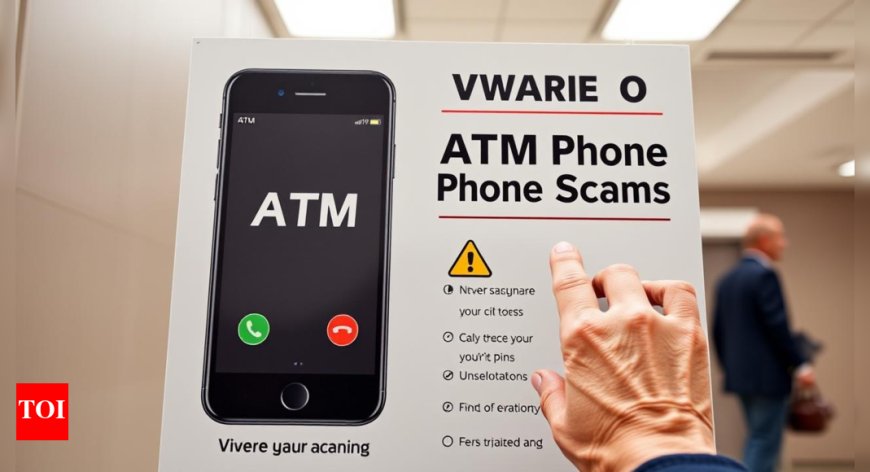No phone calls at the ATM, Japan's Osaka tells over-65s
Osaka will soon prohibit elderly individuals from using ATMs while on phone calls. This new rule aims to reduce the rising number of fraud cases targeting older adults. Scammers often impersonate family or officials to trick victims into withdrawing money. The law takes effect in August. ATM operators must inform users about the ban.

No Phone Calls at the ATM, Japan's Osaka Tells Over-65s
In a recent announcement, the city of Osaka, Japan, has directed its citizens aged 65 and above to refrain from making phone calls while using Automated Teller Machines (ATMs). This significant decision comes in the wake of rising concern over security and the proper use of financial technology in public spaces. The government aims to ensure the safety and convenience of all users as technology continues to evolve.
Why No Phone Calls at ATMs?
The primary reason behind this initiative is to prevent potential fraud and ensure a smoother transaction process at ATMs. Users often become distracted while on a phone call, making them more susceptible to various scams, including shoulder surfing or identity theft. By advising older adults to avoid phone calls while utilizing ATMs, the Osaka government hopes to create a safer environment for financial transactions.
Additionally, many reports have highlighted incidents where seniors were targeted due to their lack of familiarity with digital money management. This proactive measure is designed to encourage better practices among older citizens and equip them with the necessary information to protect themselves.
Impact on the Elderly Population
The elderly population in Japan, a country that is home to one of the highest proportions of senior citizens globally, often struggles with the integration of new technology. This initiative not only addresses safety concerns but also reflects an understanding of the challenges that this demographic faces. The Osaka government is committed to providing continuous education and support for older citizens to help them navigate the advancing world of financial technology.
For more updates, visit dharmyuddh.com.
Community Response
The response from the community has been mixed. While many seniors appreciate the precautionary measures, others feel that such restrictions might impede their convenience. It is essential for local authorities to consider these perspectives and find a balance between safety and accessibility.
This initiative showcases Osaka's dedication to promoting financial literacy and security among vulnerable populations. Through continual dialogue and education, the city aims to empower its elderly citizens to utilize ATMs confidently and responsibly.
Future of ATM Usages in Japan
As technology evolves, so must the approaches taken by authorities to advocate for the safety and welfare of users. With similar initiatives expected to roll out across Japan, the hope is for a streamlined process that enhances user experiences without compromising security.
Osaka's focus on this specific demographic not only sets a precedent for other cities but also reinforces the importance of safeguarding seniors in the face of technological advancements.
Conclusion
In conclusion, Osaka's decision to advise against phone calls at ATMs for those over 65 is a step towards fostering a safer financial environment for the elderly. This directive symbolizes a broader commitment to protecting vulnerable populations, ensuring that everyone can navigate their financial obligations securely.
Stay tuned for more news and insights from the world of financial technology and elderly support. News by dharmyuddh.com. Keywords: ATM safety for seniors, Osaka phone call ban, elderly ATM usage Japan, preventing fraud elderly, financial tech for seniors, Osaka financial literacy program, Japan's elderly population safety, ATMs and elder citizens, protecting seniors from scams, technology assistance for older adults.







